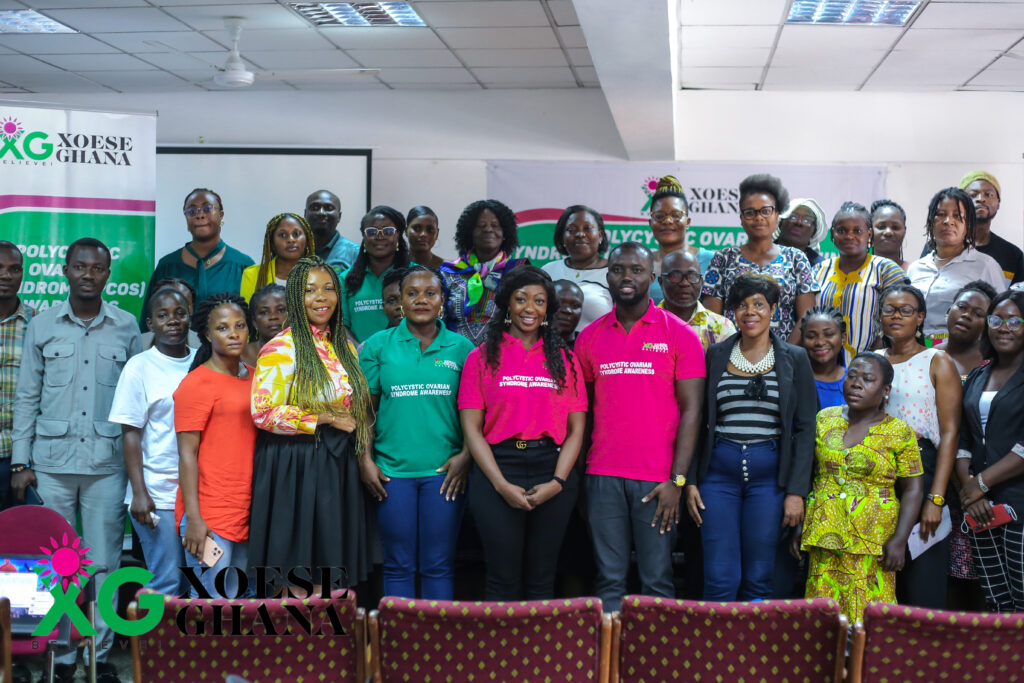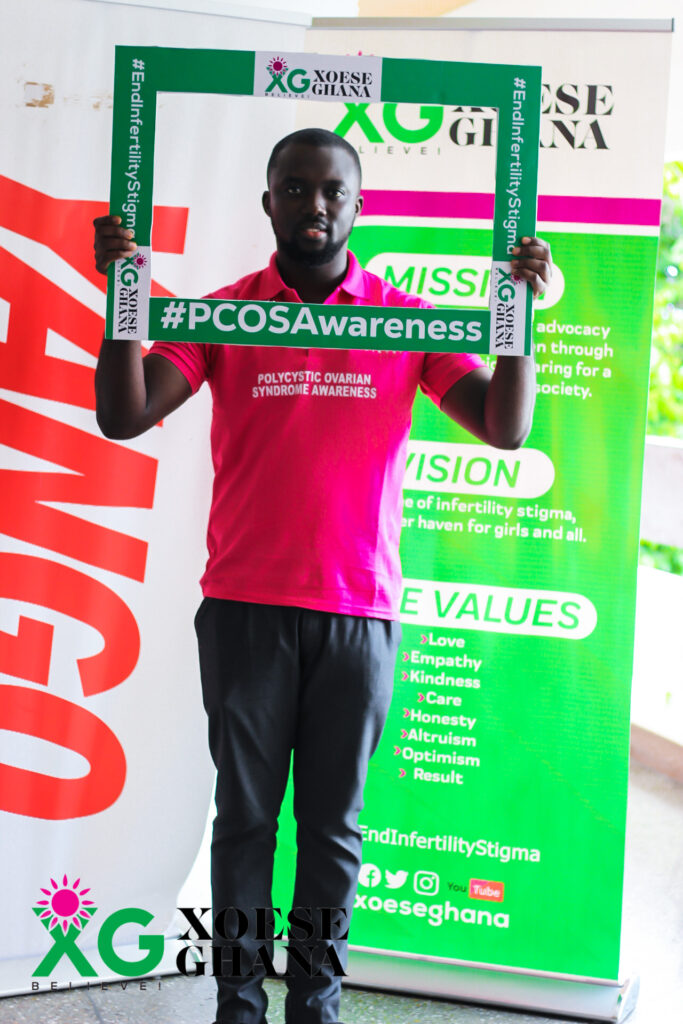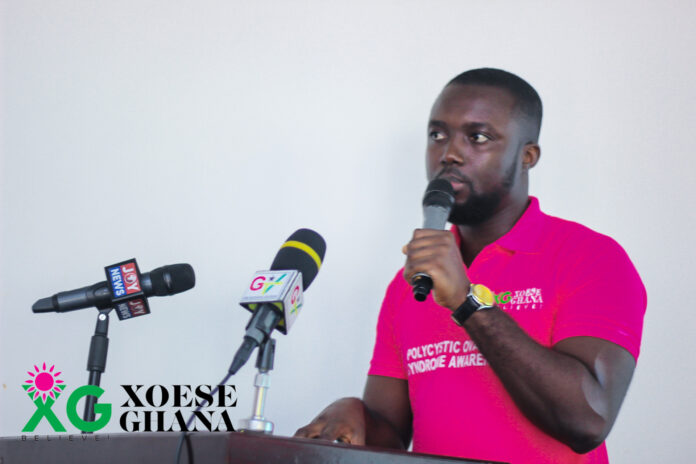By Emelia Naa Ayeley Aryee/Freelance Journalist
Dr. Samuel Gyedu Owusu, an astute medical professional with the LEKMA Hospital in Teshie, Accra, has educated Ghanaians on the issue of Polycystic Ovarian Syndrome (PCOS) at an awareness seminar organised by Xoese Ghana.
Xoese Ghana is an NGO with focus on ending infertility stigma against women and couples. In line with the campaign, the organisation organised the seminar on the theme: “PCOS, Enlightening toward an infertility stigma-free society”.
The seminar was organised with support from Yango Ghana, the Institute for Liberty and Policy Innovation (ILAPI) Ghana, IKM Construction, Tema Women’s Hospital, and Missing Children Ghana.

PCOS diagnoses
In his presentation, Dr. Gyedu defined PCOS as a set of symptoms related to an imbalance of hormones that can affect women and girls of reproductive age. It is diagnosed by a combination of signs and symptoms of androgen excess, ovarian dysfunction, and polycystic ovarian morphology on ultrasound.
He revealed that although the condition is called polycystic ovary/ovarian syndrome, PCOS is not primarily defined by ovarian cysts; but, rather, by the presence of at least two of three diagnostic criteria.
The diagnostic (Rotterdam criteria), he mentioned, are Hyperandrogenism, Menstrual irregularities, and Polycystic Ovaries on Ultrasonography.

PCOS Symptoms
The dermatological symptoms of PCOS, he noted, are hirsutism, (coarse and dark hairs on the body areas where men typically grow hair – face, back, abdomen, and chest), acne, balding, alopecia, skin discoloration, and oily skin.
He cautioned, however, that in adolescents, some of the dermatological symptoms may be caused by puberty rather than PCOS.
With menstrual disorders, Dr. Gyedu Owusu asserted that women with PCOS will report either Amenorrhea (complete absence of menstruation), Oligomenorrhea (delayed menstruation), and Menorrhagia (heavy bleeding).
He added that women with irregular menstrual periods have a 91% chance of having PCOS. Those with PCOS are 15 times more likely to report infertility.
Risk factors, effects, management, misconception
On the repercussions, Dr. Gyedu stated that women who are affected by PCOS have anxiety, depression, at risk of developing type 2 diabetes, disordered sleep, sleep apnea, infertility, preclamping, and miscarriage, among others.
Risk factors include genetics, diet, and lifestyle.
In managing PCOS, Dr. Gyedu Owusu advised women that it’s important to follow up regularly with health care provider and make sure to take all the medications prescribed to regulate their periods and lessen their chances of developing additional chronic diseases.
Because women with PCOS have a higher chance of developing diabetes and having other health problems, he recommended that they undertake blood sugar tests once a year.
Hemoglobin A1C test (a test that tells how high your blood sugar has been the past 2–3 months) once a year or a glucose tolerance test every few years, as well as vitamin D level and
thyroid function test.
One of the misconceptions, Dr. Gyedu mentioned is that contrary to what people say, it is possible to have a safe pregnancy if you have PCOS.

Treatment
Treatment, he said, includes improving insulin sensitivity, stimulating periodic withdrawal bleeding, induced ovulation,
control diet and exercise to prevent long-term cyclic vomiting syndrome (CVS), complications and diabetes
Control of hyperandrogenic features
Meanwhile, the Director for Xoese Ghana, Emelia Naa Ayeley Aryee, expressed gratitude to Dr. Gyedu for making it to the event.
She noted that the doctor is a very busy one with a tight schedule. However, he made time to prepare and share informative notes with the participants.
Ms. Aryee revealed that the PCOS Awareness Seminar will be an annual event in the month of September.







































